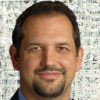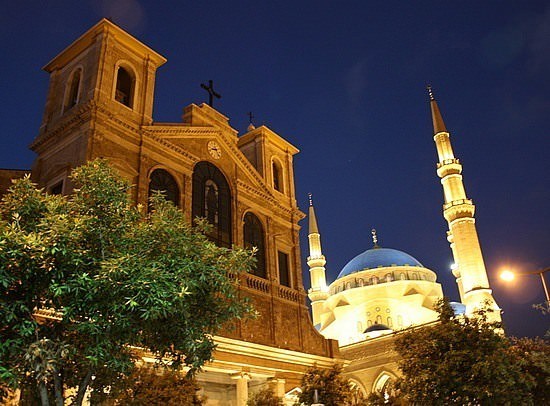Sharing the Gospel with Our Muslim Friends
We were one of the few Muslim families in the suburban Detroit community I grew up in, a community that has since diversified with thriving populations of Arabs, Chaldeans, and Asians. But in my childhood, before the diversity bloomed, our Muslim family was a bit ‘exotic.’ Those were pre-9/11 days, so our exoticness was mysterious and alluring. But since 9/11, perceptions about Muslims have changed. Some now see Muslims as potentially dangerous people with dangerous beliefs. Others think Muslims are constantly victimized by prejudice. The reality, of course, is that Muslims are people, people are imperfect, and our imperfections complicate matters quite a bit.
Middle East strife and the Syrian refugee crisis complicate matters further. North America grew by welcoming immigrants to her shores. And while we still want to embrace that welcoming spirit, we must also seriously consider whether that invites would-be oppressors to hide amongst the masses fleeing oppression. Some of us stand at the shore with arms wide. Others stand with arms crossed. As Christians, we feel the tension—we recognize the need for safety, but we long to open our hearts to those who are hurting. As a matter of policy, Canada has favoured the welcoming side of the tension. Yet, to truly understand the depth and the opportunity we’ve embraced, we need to understand the Muslim next door.
A year before 9/11, my worldview underwent a revolution. At the age of 27, after a nine-year search, I left Islam and gave my life to Christ. I now enjoy the blessing of knowing what it’s like to be a Muslim in North America and what it’s like to be a Christian who deeply loves Muslims coming to our shores. Allow me to share some insights on how to offer the gospel to Muslims—dear people Jesus gave his life to save.
The Dignity of Difference
Today it’s fashionable to focus on our similarities. The desire to focus on similarities comes from a well-meaning effort to embrace diversity, yet minimize strife between people. But that can swallow cultures whole, without sampling the diversity that make the “other” savoury and spicy. By taking our differences seriously, we recognize that each religion has a (sometimes checkered) history and that each culture has wisdom to contribute. Though we may disagree with each other’s ideas—sometimes rightfully so—we extend to others (in this case Muslims) the dignity of recognizing that their religion and cultures have their own ideas and history.
When it comes to culture, a striking difference with the West is the Muslims’ strong sense of extended community. Muslims tend to come from cultures that value deep and wide communities. Language tends to reflect a culture’s passions. Arabic, for example, has four words for cousin, at least two words each for grandmother and grandfather, and two words each for uncle and aunt. Muslims blur the lines between friends and family, calling unrelated elders “uncle” or “auntie”, cousins “brother” or “sister”, and friends “cousin.”
While many Muslim immigrants love the West, they lament the West’s lonely individualism. Muslims love lively and prolonged interaction and getting to know people. Indeed, hospitality was a primary virtue instilled in me. We never had a guest over for dinner. We had them over for a feast. If we hired someone to fix the furnace, they not only left with payment for their services, but a sack full of Middle Eastern goodies.
We loved to share our culture with others. A friend asked me how he could make a connection with the men who ran a Lebanese restaurant he went to every week. I said, “That’s easy. Just one word you need to know: marhaba. Hello in Arabic.” He walked into that restaurant with a gleeful “Marhaba!” and became instant friends with the owners (and got free baklava, too). If you join Muslims for dinner, the aroma of delicious goodies and the vibrant sounds will remind you that Christianity sprouted from roots sunk deep in the Middle Eastern soil of community.
This provides us with powerful opportunities. When a mosque opens near our neighbourhoods or churches, we may be tempted to withdraw and be suspicious. But that’s precisely the opposite of what we should do. Why not, instead, make a tray of sweets, made specially without any animal shortening, and take it to the doors of that mosque and invite them to visit our churches? It was this kind of hospitality that led a friend of mine, just one Christian man following Jesus’ example, to befriend a Muslim at a large local mosque. That friendship birthed opportunities the church and the mosque to hold formal dialogues on the nature of God, the authority of Scripture, and the like. I was blessed to participate in two of those dialogues in which hundreds of Muslims heard the gospel in clear and challenging ways.
But with the smiles and smells comes the “shame and honour” dynamic that is often strange to Westerners. For Muslims, the search for truth can give way to the fear of shame and the pursuit of honour. To even consider a different worldview—like Christianity—is to flirt with a shameful betrayal that affects the community as a whole, the family in particular, and the individual Muslim most devastatingly. That means that family honour must be upheld even at the expense of truth.
Sam Solomon, himself a former Muslim, asks us to picture a circle with a dot in the middle. In the West, the circle is life and the dot is religion. In Muslim cultures, the dot is life and the circle is religious expression. Religious identity permeates and saturates everything. That’s why nominal Muslims who don’t regularly practice Islamic rituals will still enthusiastically defend Islam in debates. In essence, they are defending their very existence. And so the objections to Christianity and the defenses of Islam will come fast and, sometimes, furious.
Answer the Person, Not the Question
In light of this obstacle, how can we offer the credibility to our Muslim friends? The Apostle Paul gives us some insight: “Walk in wisdom toward outsiders, making the best use of the time. Let your speech always be gracious, seasoned with salt, so that you may know how you ought to answer each person”. (Col. 4:5-6)
Notice that Paul doesn’t say that we ought to know how to answer each question. He specifically teaches us to answer each person. Questions don’t need answers; people need answers. And offering answers in a way that touches people can get us past the seemingly immovable obstacles.
Allow me to give you two short examples of how we can offer the gospel in a way that appeals to Muslims. You may notice that effectively sharing the gospel with Muslims requires us to address our deep differences, but also draw from an important commonality.
“Allahu Akbar!” we hear Muslims all over the world say with religious fervor. It literally means “God is Greater.” In the West, we associate this phrase with terrorism because radicals shout it when committing their atrocities. But peace-loving Muslims (the vast majority) also use this phrase routinely in formal prayer and daily living. For Muslims, God’s greatness is the cornerstone of belief. That’s something common to Christianity as well (Ps. 145:3).
From this commonality we can address some of the deepest differences between Islam and Christianity. For example, Muslims believe that parts of the Christian Scriptures were once revealed by God, but became corrupted over time, necessitating the final revelation of the Qur’an. Muslims also reject the idea that God would take on human nature, live among us, and die on a cross.
Let’s consider the validity of the Scriptures through the shared lens of God’s greatness. Two divine attributes flow from God’s greatness: omnipotence and trustworthiness. If God lacked either quality, He’d no longer be great. But this presents a profound dilemma. If the Bible was once God’s revealed word, but became corrupted, only two possibilities emerge: either God couldn’t protect the Bible or He wouldn’t protect it. If God couldn’t preserve the Bible, then he’s not all-powerful. But, no Muslim would entertain such a blasphemy. But the second option isn’t any better. If God were just unwilling to prevent the Bible’s corruption, He’d be untrustworthy. He would have allowed horrible blasphemies to lead millions to hell. And if He were willing to allow the Bible’s corruption, what gives a Muslim any confidence that God wouldn’t allow the Qur’an to become corrupted as well? No Muslim can believe that God was too impotent to preserve the Bible nor that was He so callous and untrustworthy that He chose not to.
And so only one option remains for a Muslim who wants to worship a God who is truly great: the Bible could not have been corrupted. If God is great—and both the Muslim and the Christian believe He is—then He can protect the Bible, He would protect the Bible, and history tells us that He did protect the Bible.
This brings us to addressing the cross of Christ. The God who is great enough to preserve His word is also a God who expresses the greatest attributes we all aspire to, but in the greatest possible ways. The greatest attribute is love, isn’t it? Doesn’t every other great attribute flow from love? Wouldn’t God Himself—who is infinitely greater than us—express love far better than we ever could?
If God is truly great, then He must express the greatest possible ethic in the greatest possible way. And there is no greater expression of love than self-sacrifice. We mere humans do it all the time. It’s how we know our spouses, our brothers, our sisters, or our parents truly love us. But when we express love through sacrifice for others, our natural inclination is to do it only for those who love us or for strangers at best. It goes against everything within us to sacrifice ourselves for those who hate us. But in the Christian faith, God exceeds our limited love. “God demonstrates his love for us in that while we were yet sinners, Christ died for us” (Rom. 5:8). Those words tell us that the truly great God expressed the greatest possible ethic—love—in the greatest possible way—self-sacrifice. The great God we are looking for is found nowhere other than the cross of Christ.
Missionairies Without Passports
God in His sovereignty has brought Muslims to our very doorsteps. How we treat them will be testimony about how we accept that God-given opportunity. We no longer need passports to spread the gospel to the world. The world is coming to us. Most Muslims aren’t smoldering militants twisting their mustaches as they scheme your destruction. Nor are they merely foreign curiosities. They are different and yet the same. In the most important way, Muslims are just like all of us. They are sinners in need of the Saviour. And the Saviour loves them just as much as you. I thank God that Christians came into my life who saw me that way and offered me the gospel, which tells of a God who is truly great. I pray that you’ll see Muslims as God sees them and offer them that gospel.
About


